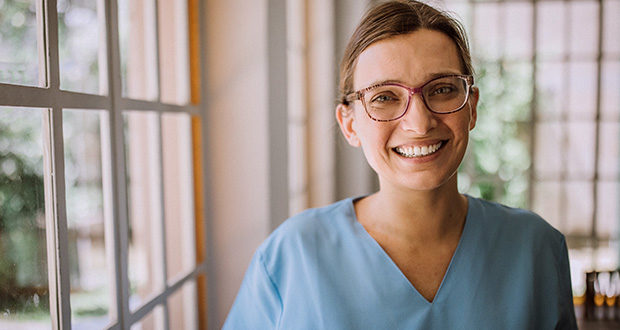Aged care and nursing unions have pushed for equal pay for the female-dominated workforce on International Women's Day.
Yesterday, the Aged Care Workforce Industry Council (ACWIC) and the Australian College of Nursing (ACN) chiefs said that it's unacceptable for women to continue to face workplace discrimination.
Nearly nine out of ten aged care staff identify as female.
"This is not just about gender equality; it is about our ability to provide high-quality, person-centred care," ACWIC deputy chair Graeme Prior said.
"And that absolutely depends on alleviating the aged care workforce crisis.
"To attract and retain aged care workers, we must improve career pathways and create substantial jobs that retain workers for the longer term."
It's estimated that 139,000 aged care workers plan to leave the sector in the next three years due to high-stress levels and low pay.
Last year, the FWC ordered a 15 per cent pay rise for aged care workers to reduce the gender pay gap for 'the historically undervalued female workforce.'
ACWIC said it would continue to push for a 25 per cent wage increase though it acknowledged the umpire's ruling it was a 'step forward.'
"A further pay rise would help to close the gender pay gap and increase the number of people willing to take on these meaningful and rewarding roles," Prior said.
"We're firmly committed to improving outcomes for aged care workers so that they feel valued and supported.
"On International Women's Day, we recognise that these workers deserve more than our thanks."
Women in healthcare and aged care are often paid much less than men because they are more likely to be in part-time jobs or less senior roles.
They are also more likely to experience workplace discrimination and take (family) leave.
While the workforce participation rate is comparable for men (71%) and women (62%), women partake significantly more in housework (70%) than men (42%).
Women also spent more time in childcare activities, with an average of 3 hours and 34 minutes per day, compared to men (2 hours and 19 minutes).
Additionally, working women earned $1.01m less over their working lives than men, according to research published on Wednesday.
Federal data calculated a 13,4 per cent gender pay gap for health care and social assistance work in 2022.
It's anticipated that the gender pay gap in Australia would not be closed for another 30 years.
By then, 60 per cent of the people currently working would have retired.
Men also tend to earn more in female-dominated sectors such as aged care.
In Australia, the study identified 80 occupations where the workforce is male-dominated, and men earned an average annual salary of over $100,000.
In contrast, researchers found zero professions where the majority of the workforce was female and received a salary above $100,000 a year.
The Australian College of Nursing (ACN) chief adjunct professor Kylie Ward said the gender pay gap underlines how society's perceived health and aged care work.
"Gender pay gaps reflect how we value women's and men's contributions in the workforce," Ward said.
"Working women deserve equal pay. It's as simple as that.
"We still have work to do."
Violence against people working in aged care
Minister for Social Services Amanda Rishworth said International Women's Day served as a day to reflect on aggression and violence in the workplace against women.
The highest recorded reason for aged care staff to file a formal complaint is due to violence.
Ninety-three per cent of people interviewed in an independent RMIT University study reported having experienced physical violence at work.
The majority said to be attacked at least twice.
Over 85 per cent reported they had been sexually harassed, and nearly half said they had been threatened with a weapon.
Yet, the study said there's a lack of training and intervention for managers, nurses and care workers around resilience and emotional intelligence.
It also pointed out a culture of blame around violence in aged care, where the staff is often held responsible.
"Living free of violence is a basic human right," Rishworth said.
"We need to make changes now so that we can achieve a society free from violence."
Australia's assistant minister for health and aged care, Ged Kearney, said she'd experienced gender equality first-hand while working as a nurse in public hospitals for twenty years.
It affects their participation in the workforce, compromises economic opportunity, reduces productivity and impacts the adequacy of social services and aged care," Kearney said.
"The health system is failing women.
"If we're talking about 'cracking the code' – this year's International Women's Day theme – we owe it to them to lift our game."
Do you have an idea for a story?Email [email protected]
 Aged Care Insite Australia's number one aged care news source
Aged Care Insite Australia's number one aged care news source

